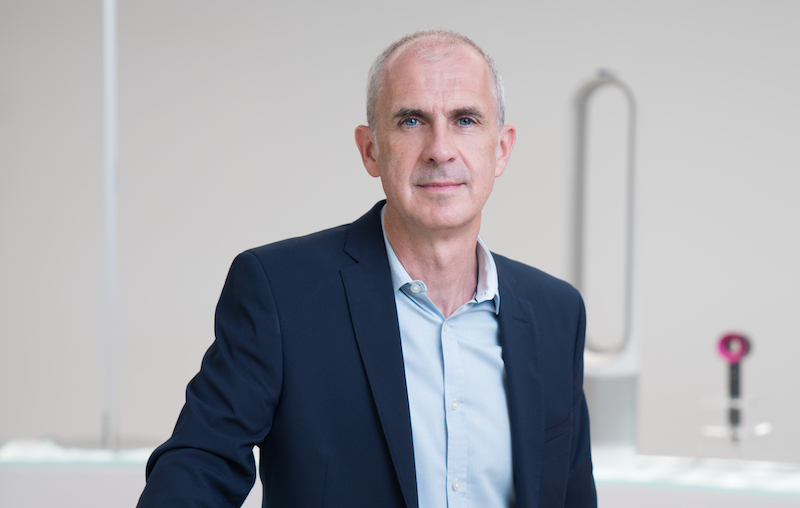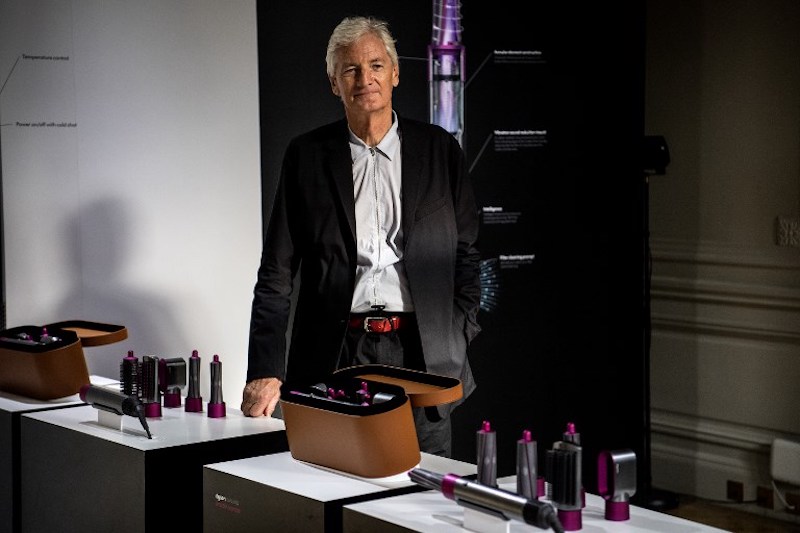British electric appliance pioneer Dyson will switch headquarters to Singapore this year due to booming Asian demand but not because of Brexit, the company said Tuesday.
The group, founded and owned by serial entrepreneur and vocal Brexit supporter James Dyson, last year announced it would produce electric cars in Singapore.
The firm stressed that Brexit was not a factor behind the decision to ditch its corporate base in Malmesbury in Wiltshire, western England, in favor of Singapore.
Dyson, famed for its cordless vacuum cleaners, hand dryers and fans, now has its sights set on electric vehicles — particularly in Asia.
“An increasing majority of Dyson’s customers and all of our manufacturing operations are now in Asia; this shift has been occurring for some time and will quicken as Dyson brings its electrical vehicle to market,” it said in an earnings statement.
“As a result, an increasing proportion of Dyson’s executive team is going to be based in Singapore; positioning them to make the right decisions for Dyson in a quick and efficient way.
“This does not change any of our investment and recruitment plans; however we are now at a point where Dyson’s corporate head office will relocate there to reflect the increasing importance of Asia to Dyson’s business.”
A prototype Dyson electric vehicle is in the works for 2020, followed by a product launch in 2021.
‘Not related to Brexit’

The Singapore move “is not related to Brexit”, chief executive Jim Rowan told reporters on a conference call, noting there was only a “negligible” tax benefit.
“We don’t see any issues regarding Brexit,” he said, adding that Dyson’s manufacturing capacity, as well as the majority of its supply base, is in Southeast Asia.
“We are a global technology company,” Rowan insisted, adding that it would continue to invest in home market Britain.
Dyson had already announced last October that it had picked Singapore for its first electric car plant, sparking criticism from some quarters that its Brexit-backing billionaire founder had not invested more in the UK.
But the group also said in March that it would open a second research and development center in a former Royal Air Force airfield in Hullavington, southwest England.
Meanwhile on Tuesday, Dyson said that 2018 underlying profit — as measured by earnings before interest, taxes, depreciation, and amortization (EBITDA) — surged one third to £1.1 billion (1.2 billion euros, US$1.4 billion).
Turnover, or sales, rose by 28 percent to stand at £4.4 billion on growing global appetite for cutting-edge technology.
“Globally, enthusiastic owners are demanding high-performance products so we are deepening out operations and technology investments to meet their needs,” added Rowan.
James Dyson, who owns 100 percent of the company he founded in the 1970s, has revolutionized household appliances with his bagless vacuum cleaners, bladeless fans, and air purifiers.




